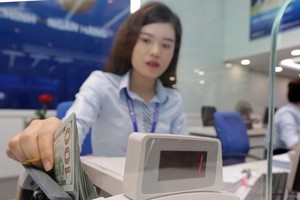
This afternoon, the committee announced that, in response to the data incident at the National Credit Information Center (CIC), it has received several queries and concerns from its members. A preliminary assessment indicates that Vietnam's banking and credit systems remain secure, well-protected, and stable. Initial verification results show signs of a cyberattack aimed at stealing personal data. The exact amount of data illicit obtained is still being tallied and clarified.
Some members have expressed concern about whether the data theft affects the banking system, specifically bank accounts and credit cards, and if they should lock their cards or change their banking passwords to ensure safety.
In response to these concerns, Mr. Vu Ngoc Son, a representative of the committee, confirmed that, based on a preliminary assessment, Vietnam's banking and credit systems are still secure, tightly protected, and operating stably.
According to Mr. Son, individuals do not need to take measures such as locking cards, freezing accounts, changing CVC/CVV codes, or changing passwords, as suggested by unofficial online sources. These actions do not enhance security; on the contrary, they can disrupt transactions and directly affect daily life.
Regarding the incident, the National Cyber Security Association also warned of the risk that malicious actors might exploit the situation by impersonating banks or authorities to commit fraud, spread malware, or steal user information and assets.
"Bad actors may make fake calls or send fraudulent messages to ask users for personal information, credit card details, CVC/CVV codes, or one-time password (OTP) security codes. Users should be aware that banks will never ask customers to perform these actions through unofficial channels," the association's statement said.
























